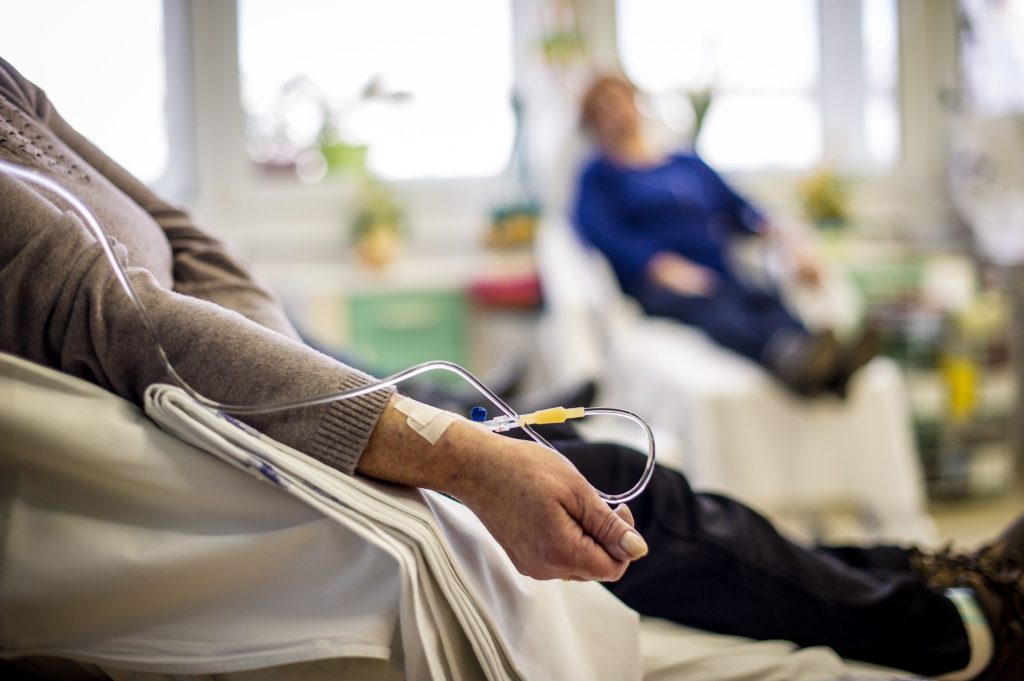
Diagnosed with Cancer? Your two greatest challenges are understanding cancer and understanding possible side effects from chemo and radiation. Knowledge is Power!
Learn about conventional, complementary, and integrative therapies.
Dealing with treatment side effects? Learn about evidence-based therapies to alleviate your symptoms.
Click the orange button to the right to learn more.
- You are here:
- Home »
- Blog »
- side effects ID and prevention »
- Cancer Diagnosis? Don’t Panic, Get Organized
Cancer Diagnosis? Don’t Panic, Get Organized

A cancer diagnosis feels like a death sentence, and it’s easy to panic and make major life changes the moment you leave your doctor’s office. But now is not the time to lose your cool, and there are many things that you can do to ease stress as the news sinks in. This starts by getting organized and prioritizing self-care.
Identify your resources.
While your doctor is one of your most valuable resources now, you can also find information online about your condition. Be cautious, however, that you use reputable resources.You can also learn all about the different types of cancer and their treatments on the American Cancer Society’s website.
Organize your medical records.
Getting your medical records organized now is more important than ever. Contact every healthcare provider that you’ve seen in the last five or so years and ask for printed or digital copies of your health reports. You can then turn these into a shareable online document, which is faster with a PDF file converter that allows you to turn all sorts of files into sortable, editable, and shareable PDFs. PDFs can be created with a drag-and-drop method, and they are much easier to share than Microsoft-specific files.
Get enough sleep.
Even if you don’t have a confirmed anxiety disorder, the Brain & Behavioral Research Foundation notes that stress can keep you up at night. But you need your sleep, so make sure that you set healthy sleep hygiene patterns, such as going to bed each time every day and ditching the devices the 30 minutes before bed. You can also pamper yourself by updating your bedroom to suit your style. Find your own pillow sham, comforter, and bedding set that matches your style (you can order from online providers that utilize global artists). Bonus points for using a customized design that you don’t have to wait to come into stock.
Tidy up your estate planning.
If you don’t have a will and medical directives yet, now is a great opportunity to handle these important estate planning tasks. LegalShield explains that a will can help minimize family conflicts while giving you the final say over what happens to your assets. You can also ensure that those you cared for the most are taken care of when they need it most.
Look at your family history.
While the University of Connecticut Health explains that only about 5 to 10% of cancers are hereditary, it pays to know if you fall into this narrow margin. Why? So that you can rule out other potential contributing factor for your cancer diagnosis and, most importantly, talk to your children and grandchildren about their risk. If you’re adopted, this can present challenges, but you may be able to take a DNA test or inquire about non-identifying information about your birth parents to get you started.
It’s possible to live with cancer for many healthy years after diagnosis. But to ensure your best chances of getting the most out of these years, make sure that you organize your medical records, ensure that your body is well rested and that you get enough sleep, and take care of yourself in other ways, such as by knowing your family history and reducing stress by having your estate plan in order. You also want to look at reputable health resources because knowledge is power as you face the unknown.

